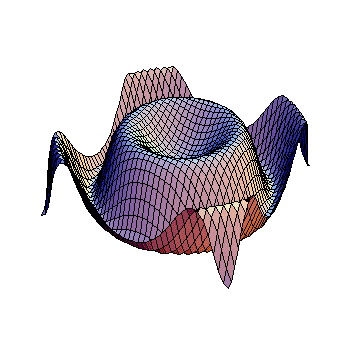What is the square root of 169 - square root of 50 - the square root of 8?
1 Answer
Explanation:
The first thing to do is factor all the numbers inside the roots. That is, listing out all their integer prime submultiples in order from smallest to biggest.
You don't have to follow that order or only use prime or even integers but this way is the easiest because:
a) You have an order so you won't forget to put a multiple or not
b) If you put in all the prime numbers you'll eventually cover every number. It's a bit like finding a least common multiple but you do it a at a time.
So for 169, the factorization is
For 50, the obvious instinct is say that it's
Since 50 has a square factor we can take the 5 out. But the 2 gotta stay, so we can rewrite that to be:
And last but not least, 8. Which we know to be
We have two factors with a root of 2 out, so we can smush them together into one
And there isn't anything left to do, this is as simple as it'll get. For the actual value you'll have to estimate a value of

